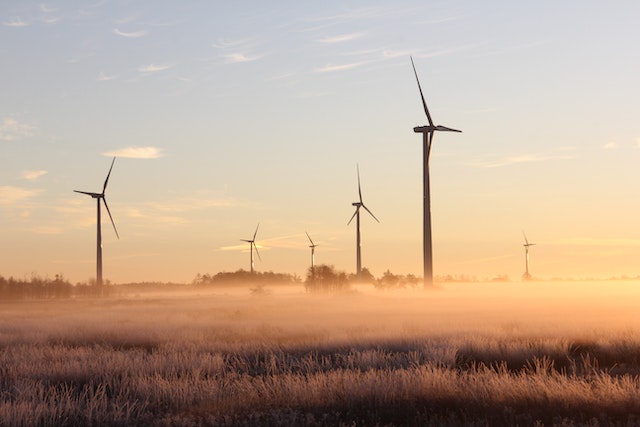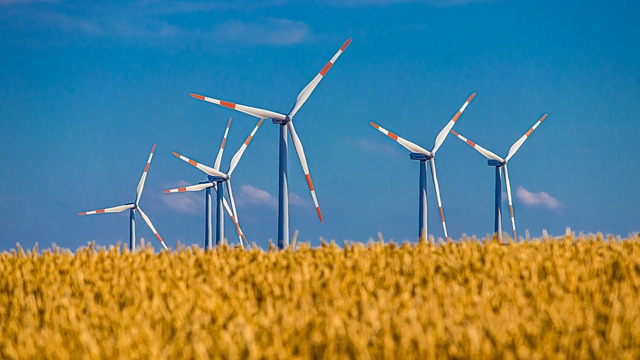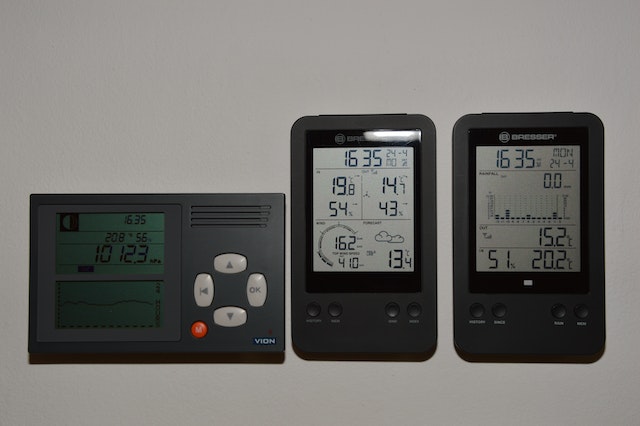Energy Conservation: Why Does it Matter?
In today’s world, where the buzzwords are “sustainability” and “green living,” the topic of energy conservation stands out prominently. But why does energy conservation matter so much? Beyond the immediate benefits of reduced energy bills and decreased energy usage, the broader implications touch on climate change, the future of our natural resources, and the very health of our planet. “Energy Conservation: Why Does it Matter” is not just a question; it’s a call to action.
The Growing Concern of Energy Consumption
The United States and Energy Usage
The United States, among other developed nations, has seen a dramatic increase in energy consumption over the past few decades. Plus, with the rise of electronic devices, air conditioners, and other modern conveniences, our daily lives are intertwined with energy usage. But with this convenience comes responsibility.
Fossil Fuels and Their Impact
Fossil fuels, including coal, oil, and natural gas, have long been the primary sources of energy. However, their extraction and usage contribute significantly to greenhouse gas emissions, leading to global warming.
Also the burning of fossil fuels releases carbon dioxide, a major greenhouse gas, into the atmosphere. This has dire consequences for our environment, leading to natural disasters and changing weather patterns.
Why Should We Care About Energy Conservation?

Protecting Our Natural Resources
Indeed energy conservation is crucial for the preservation of our natural resources. As we continue to consume energy at our current rate, we risk depleting these resources, leaving future generations in a precarious position.
In fact, renewable energy sources, such as wind energy and solar power, offer alternatives, but they also require a commitment to energy efficiency to be truly effective.
The Economic Implications
Energy costs are rising. As the demand for energy increases and resources become scarcer, the price of energy inevitably goes up. By adopting energy-efficient appliances and habits, households and businesses can significantly reduce their energy bills.
Simple ways, like using smart power strips or opting for energy-saving light bulbs, can make a big difference in the long run.
Climate Change and Our Responsibility
Worryingly global warming is no longer a distant threat; it’s a reality we’re facing now. Greenhouse gases, primarily from energy production and consumption, are the leading cause. Therefore, by reducing our energy consumption, we can directly combat climate change, ensuring a healthier planet for future generations.
How Can We Make a Difference?

Embracing Renewable Energy Sources
Harnessing the power of wind energy, solar energy, and other renewable sources is a step in the right direction. Importantly, not only do these sources reduce carbon emissions, but they also pave the way for a sustainable energy future.
Smart Choices in Daily Lives
From choosing LED over incandescent bulbs to washing clothes with cold water, every decision counts. Energy-efficient products, such as programmable thermostats and energy star label appliances, can significantly reduce energy consumption in homes.
Educating and Spreading Awareness
Knowledge is power. By understanding the importance of energy conservation and its impact on our world, we can make informed choices. Sharing this knowledge with others amplifies the positive impact.
5 Frequently Asked Questions on Energy Conservation
What is the U.S. Department of Energy’s stance on energy conservation?
The U.S. Department of Energy (DOE) is a strong advocate for energy conservation. They emphasize the importance of reducing energy consumption to ensure national security, environmental health, and economic stability.
The DOE funds research on energy-efficient technologies sets efficiency standards for appliances and equipment, and runs programs like the Energy Star initiative to promote and recognize energy-efficient products and practices.
How do smart thermostats help in reducing energy consumption?
Smart thermostats are designed to optimize heating and cooling in homes and buildings. They learn from users’ habits and preferences and adjust temperatures accordingly.
For instance, they can lower the heat when no one is home and warm up the house right before residents return. By ensuring that heating and cooling systems operate only when needed, smart thermostats can significantly reduce energy consumption and, consequently, energy bills.
Are solar panels a viable option for most households?
Yes, solar panels have become a viable option for many households, especially with the decrease in costs over the past decade. The viability of solar panels also depends on the geographic location and the amount of sunlight received.
In areas with ample sunlight, solar panels can generate significant electricity, reducing or even eliminating electricity bills. Moreover, many governments offer tax incentives and rebates to households installing solar panels, making them an even more attractive option.
How does water heating contribute to energy bills?
Water heating is one of the significant contributors to energy bills in many households. Traditional electric water heaters continuously heat water in a tank, consuming a lot of energy. On the other hand, tankless or on-demand water heaters heat water only when needed, leading to energy savings.
By using energy-efficient water heating methods, such as solar water heaters or heat pump water heaters, households can significantly reduce their energy consumption and bills.
What are the environmental benefits of reducing energy consumption?
Firstly, reducing energy consumption has several environmental benefits. Firstly, it leads to a decrease in greenhouse gas emissions, which are the primary contributors to global warming and climate change.
Secondly, by reducing our reliance on fossil fuels, we decrease air pollution, leading to cleaner air and fewer health issues. Additionally, conserving energy reduces the strain on natural resources, ensuring they last longer for future generations.
Excitingly, this article has just begun to scratch the surface of “Energy Conservation: Why Does it Matter.” As we delve deeper, we’ll explore more about the technologies, strategies, and innovations that are shaping the future of energy conservation. Stay tuned for more insights and actionable tips to make a difference in your energy consumption habits.
Note: The fact included in this segment is that the burning of fossil fuels releases carbon dioxide, a major greenhouse gas, into the atmosphere. This information is sourced from the U.S. Environmental Protection Agency.
The Role of Modern Technology in Energy Conservation

Harnessing the Power of Smart Thermostats
Did you know one of the groundbreaking innovations in the realm of energy conservation is the advent of smart thermostats. Indeed, these devices not only allow homeowners to program their heating and cooling systems but also learn from their habits.
Thus over time, they optimize energy usage, ensuring that homes remain comfortable without wasting energy. In the United States alone, the widespread adoption of these devices can lead to substantial energy savings, reducing the overall energy consumption of the nation.
Energy-Efficient Appliances: A Game-Changer
The U.S. Department of Energy has been at the forefront of promoting energy-efficient appliances through the Energy Star label. Appliances with this label have been tested and proven to consume less energy than their non-labeled counterparts.
From washing machines that use cold water to refrigerators that maintain optimal temperatures without overworking, these appliances are making a significant difference in households across the country.
The Global Perspective on Energy Conservation
The Shift Towards Renewable Energy Sources
Additionally, Countries around the world are recognizing the importance of shifting away from fossil fuels.
Wind energy, for instance, has seen a surge in adoption, with massive wind farms cropping up from the plains of the United States to the coasts of India.
Solar energy, too, is seeing a renaissance. Solar panels are becoming more affordable, and their efficiency is continually improving. This shift not only reduces carbon emissions but also ensures a sustainable energy future.
The Challenge of Global Warming and Climate Change
While global warming is not just a buzzword; it’s a pressing reality. Rising temperatures, melting ice caps, and erratic weather patterns are just the tip of the iceberg. The primary culprit? Greenhouse gas emissions, largely from energy production and consumption.
Yet, by focusing on energy conservation, we can directly combat this global challenge, ensuring a safer planet for future generations.
Practical Steps for Energy Conservation

Simple Ways to Make a Big Difference
Lighting: Opt for LED or halogen bulbs over incandescent light bulbs. They last longer and consume a fraction of the energy.
Water Heating: Consider solar water heaters or on-demand electric water heaters. They provide hot water when needed without continuously heating a tank.
Home Insulation: Proper insulation ensures that homes remain warm in winter and cool in summer without over-relying on heating systems or air conditioners.
Electronic Devices: Unplug devices when not in use. Even in standby mode, they can consume a surprising amount of energy.
The Role of Natural Resources
Significantly natural resources play a pivotal role in energy production. However, the excessive consumption of energy leads to the depletion of these resources. By conserving energy, we ensure that these resources are available for longer, reducing the strain on the planet.
The Economic Benefits of Energy Conservation
Reducing energy consumption doesn’t just benefit the environment; it also has a direct impact on our wallets. Utility bills often form a significant portion of monthly expenses for households.
By adopting energy-efficient habits and technologies, families can see a noticeable reduction in these bills. In the long term, this can lead to substantial savings.
Moreover, as the demand for energy-efficient products grows, industries adapt, leading to job creation in the energy sector. This not only boosts the economy but also paves the way for a greener future.
Conclusion of Part Two
Energy conservation is not just a responsibility; it’s a necessity. As we continue to delve into the intricacies of this topic, it becomes evident that every individual’s effort counts. Whether it’s switching off a light when not in use or advocating for renewable energy sources, every step matters.
In the next segment, we’ll explore more about the societal implications of energy conservation and how communities worldwide are making a difference.
The Societal Implications of Energy Conservation
The Positive Impact on Today’s World
In today’s interconnected world, the ripple effects of energy conservation are felt far and wide. When communities prioritize energy efficiency, they not only reduce their carbon footprint but also pave the way for a healthier, more sustainable future.
Clean energy initiatives reduce air pollution, leading to fewer cases of respiratory illnesses and creating a healthier living environment.
The Role of Energy-Efficient Homes

Modern architectural designs are increasingly focusing on energy-efficient homes. These homes, equipped with Energy Star-rated appliances, smart power strips, and energy-saving light bulbs, play a pivotal role in reducing the overall energy consumption of a community.
Such homes not only lower energy use but also offer residents reduced utility bills, making energy conservation both an environmentally and economically sound choice.
The Environmental Benefits of Energy Conservation
Combatting the Greenhouse Effect
One of the most significant challenges of our time is the greenhouse effect, primarily caused by carbon dioxide emissions and other greenhouse gases. Energy conservation directly addresses this issue.
Equally, by reducing energy consumption, we inherently reduce greenhouse gas emissions, slowing the pace of global warming and mitigating its adverse effects.
Preserving Natural Resources for Future Generations
Our planet’s natural resources are finite. Over-reliance on fossil fuels like coal, natural gas, and oil has led to rapid depletion of these resources. Energy conservation ensures that we make the most of what we have, prolonging the availability of these resources and ensuring that future generations inherit a planet rich in natural bounty.
Innovations in Energy Conservation
Harnessing Kinetic and Potential Energy
Innovative technologies are emerging that harness the kinetic energy from daily activities. For instance, some modern gyms are equipped with equipment that converts the kinetic energy from workouts into electricity.
Similarly, potential energy stored in elevated water can be used to generate hydroelectric power, showcasing the diverse ways in which we can harness natural energy sources.
Transitioning to Clean Energy Production
The energy sector is undergoing a significant transformation. With a growing emphasis on clean energy, power stations are increasingly turning to renewable energy sources like wind and solar power.
This not only reduces carbon emissions but also ensures a sustainable energy production model that doesn’t rely on depleting natural resources.
Empowering Communities Through Energy Conservation
Education and Awareness
One of the most effective ways to promote energy conservation is through education. Schools, community centers, and local governments play a crucial role in raising awareness about the importance of energy conservation.
Workshops, seminars, and community-driven initiatives can instill energy-saving habits from a young age, ensuring a brighter future.
Incentives and Tax Credits
Governments worldwide are recognizing the importance of energy conservation and are offering incentives and tax credits to those who adopt energy-efficient practices.
Whether it’s installing solar panels, purchasing energy-efficient appliances, or retrofitting homes for better insulation, these incentives make energy conservation an attractive proposition for many.
Conclusion of Part Three
As we delve deeper into the realm of energy conservation, it’s evident that this isn’t just a trend – it’s a movement. A movement that promises a brighter, cleaner, and more sustainable future.
As we gear up to explore the final facets of this topic, it’s essential to remember that every individual, every community, and every nation has a role to play. Together, we can make a difference.
The Economic Implications of Energy Conservation

Reducing Energy Bills and Boosting Savings
One of the immediate benefits of energy conservation is the reduction in energy bills. Households and businesses alike can witness significant savings by adopting energy-efficient practices.
From using programmable thermostats to regulate heating systems to replacing incandescent bulbs with LED models, these simple changes can lead to substantial financial benefits in the long run.
Stimulating the Energy Sector and Creating Jobs
The shift towards energy-efficient products and renewable energy sources has given a significant boost to the energy sector. The demand for solar panels, wind turbines, and energy-efficient appliances has led to job creation, stimulating the economy.
Thus, the U.S. Department of Energy has been at the forefront of this movement, offering grants and incentives to businesses venturing into clean energy production.
The Role of Technology in Energy Conservation
Smart Thermostats and Home Automation
The advent of smart thermostats has revolutionized home heating and cooling systems. These devices learn from users’ habits and adjust heating or cooling accordingly, ensuring optimal energy usage.
Moreover, home automation systems allow homeowners to control lights, appliances, and even blinds remotely, ensuring that energy is used only when needed.
Harnessing Solar and Wind Energy
Solar and wind energy are at the forefront of the renewable energy movement. Solar power, harnessed through photovoltaic systems and solar water heaters, has become increasingly popular in residential settings.
Wind energy, on the other hand, is being utilized on both large and small scales, from vast wind farms to individual turbines used by businesses and homes.
Addressing Common Questions on Energy Conservation
Why is energy conservation crucial in today’s world?
In today’s world, the rapid depletion of natural resources and the adverse effects of climate change make energy conservation more critical than ever. By conserving energy, we reduce greenhouse gas emissions, combat global warming, and ensure a sustainable future for the next generations.
How can individuals contribute to energy conservation?
In fact individuals can contribute by adopting simple habits like turning off lights when not in use, using cold water for washing, and investing in energy-efficient appliances. Additionally, spreading awareness and educating others about the importance of energy conservation can have a ripple effect in the community.
What are the environmental benefits of reducing energy consumption?
Reducing energy consumption directly leads to a decrease in carbon emissions and other pollutants. This not only combats global warming but also results in cleaner air, reduced acid rain, and a healthier environment.
Are renewable energy sources truly sustainable?
Yes, renewable energy sources like solar, wind, and geothermal are sustainable as they rely on natural processes that are continuously replenished. Unlike fossil fuels, which are finite, renewable sources offer a long-term solution to our energy needs.
The Global Perspective on Energy Conservation
Energy Conservation Efforts in the United States
The United States has been a pioneer in promoting energy conservation. From federal tax credits for energy-efficient homes to stringent standards for appliances, the country has made significant strides in reducing energy consumption.
The Energy Star label, for instance, has become a hallmark of energy-efficient products, guiding consumers toward smarter purchases.
The Link Between Energy Conservation and Global Warming
Finally, as nations worldwide grapple with the effects of climate change, energy conservation emerges as a potent tool in the fight against global warming.
By reducing our reliance on fossil fuels and embracing renewable energy sources, we can significantly reduce carbon dioxide and greenhouse gas emissions, slowing the pace of global temperature rise.
Conclusion of Part Four
Interestingly, the journey through the multifaceted world of energy conservation reveals its undeniable importance in shaping a sustainable future. As we continue to explore this topic, it becomes evident that collective efforts, combined with technological advancements, can lead us to a brighter, energy-efficient tomorrow.
Recent Posts
Understanding Energy and Electricity: The Power For Progress
Energy and Electricity Energy and electricity are integral components of modern life, powering everything from homes and businesses to transportation and communication. Without them, the...
The Future of Wind Energy The future of wind energy is set to play a critical role in addressing global energy needs while combating climate change. As renewable energy sources like wind and...



